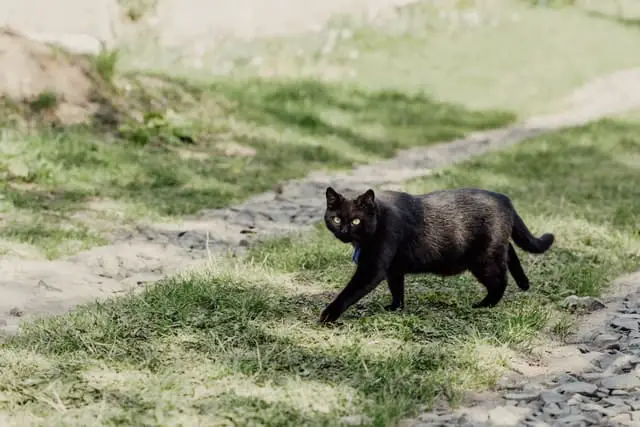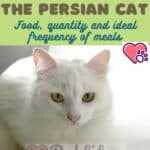
Feeding the Bombay cat, everything you need to know about this breed, from food, to doses, up to the frequency of meals.
A cat that eats well is a cat that will almost certainly not have major health problems during the course of its life.
In order to feed a cat properly, it is necessary to know its needs and any problems of the breed.
In this article we will learn about the right diet for the Bombay cat based on the needs of this specific breed.
The right diet for the Bombay cat
In order to guarantee the Bombay cat a long life in good health, it is necessary to provide for its nutrition using only quality products, in the right doses and at precise times.
There are two types of diets to feed your cat and each owner is free to decide which one to opt for.
The types of nutrition are divided into: industrial products and BARF diet (housewife).
Industrial feed can be found on the market, before buying it it is advisable to always look at the nutritional table and the list of ingredients indicated on the back of the package.
To be a good product it must contain:
- meat and fish
- other proteins (eggs, cheese)
- vegetables
- cereals.
Generally, what makes the quality of the food is the meat (or in any case the fish which is always meat), so the meat should always be in the first places.
In fact, the components are always indicated from the most to the least present.
On the market, cat food can be found in the form of cat food or wet cat food.
The choice is personal but in both cases you have to pay attention to the percentage of magnesium contained in the feed.
A high dose of magnesium for cats could be a source of risk of kidney stones in cats.
As we mentioned there is an alternative to industrial food, that is a home diet known as the BARF diet, which consists of:
- biologically appropriate raw food. It involves the administration of raw meat, which has a greater digestibility of food and an almost total assimilation of nutrients.
Doses and frequency of meals

If you have adopted a Bombay cat it is essential that you know that this breed is very lazy and its diet must be kept under control.
Therefore, considering this characteristic of the Bombay cat, which leads him to do little movement, it is advisable to administer the right doses of food to prevent the cat from becoming obese.
Furthermore, its sedentary lifestyle makes the formation of stones in the urinary tract particularly likely. It is good to alternate at least a couple of different brands of food every now and then.
In addition, experts advise to be careful with the doses and contact your veterinarian for a correct and personalized feeding plan.
The recommended daily amount depends on the lifestyle and age of the cat.
Therefore, if we consider the lifestyle of the adult Bombay cat, two meals a day of maximum 200 grams are enough.
Even better if we divide them into several meals throughout the day. Below is a purely indicative table for the daily doses of food for the cat:
- from 8 weeks to 6 months: 3 and 4 servings a day of 25 to 30 grams each;
- after 6 months: it is possible to reduce the number of meals to 2 per day by 200 and 350 grams of food each for the Bombay cat;
- 1 year: one meal a day, it might be appropriate to divide the portion in two, i.e. morning and evening from 200g to maximum 350g for the Bombay cat.
Essential nutrients in the Bombay diet
In the Bombay cat’s diet there are certain foods that are very important for its health.
Being a carnivore like any other cat, the Bombay cat needs animal proteins, which is why it is advisable to give both meat and fish to the animal.
Experts suggest feeding the Bombay cat the following foods:
- beef;
- veal;
- chicken and turkey;
- not canned tuna;
- hake;
- cod;
- sole;
- salmon.
The fact remains that it will be necessary to supplement the Bombay cat ‘s diet with: carbohydrates, fats, vitamins, vegetable proteins and mineral salts.
Let’s not forget the water, always fresh, since even if it is true that the cat drinks very little, it must never be without water.






